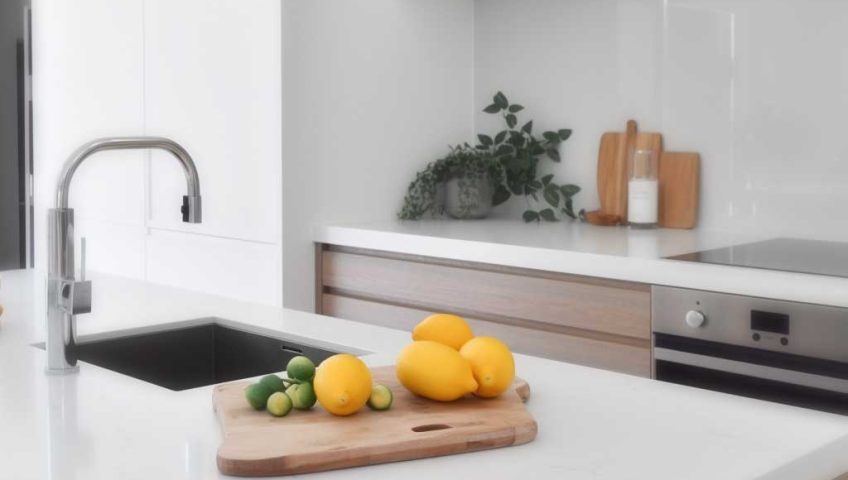A well-maintained kitchen is not only visually appealing but also essential for a clean and healthy cooking environment. One of the most important aspects of kitchen maintenance is taking care of your benchtop. In this in-depth guide, we’ll explore the best practices for cleaning and maintaining various types of kitchen benchtops.
Cleaning Benchtop
Before starting the cleaning process, remove any appliances, dishes, and clutter from your benchtops. This will give you easy access to the entire surface and make the cleaning process more efficient.
Identifying the Countertop Material
There are numerous materials used for kitchen benchtops, including natural stone, laminate, stainless steel, concrete, and wood. Each material requires different cleaning methods and products, so it’s crucial to identify the type of countertop you have before beginning the cleaning process.
Natural Stone benchtop
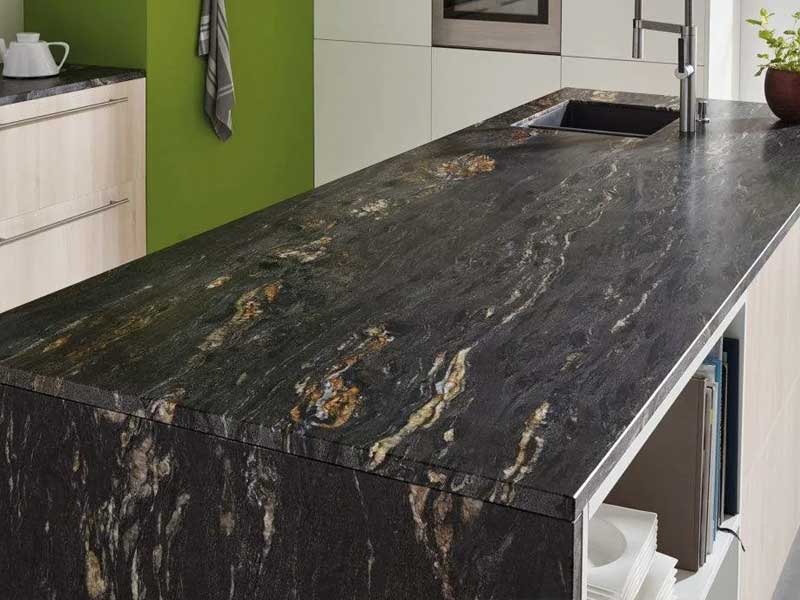
Natural stone benchtops, such as granite, marble, and quartz, are popular choices for their durability and beauty. However, they require special care to maintain their appearance and avoid damage.
Cleaning: Use a gentle, pH-neutral cleaner specifically designed for natural stone or a mild dish soap diluted in water. Avoid using acidic or abrasive cleaners, as they can etch the surface and cause damage.
Stain Removal: If you notice a stain on your natural stone countertop, act quickly. Create a paste of baking soda and water, apply it to the stain, and let it sit for 15 minutes. Gently scrub the area with a soft cloth, then rinse and dry.
Sealing: To protect your stone benchtops from stains and damage, apply a sealant every six months to a year, depending on the manufacturer’s recommendations.
Laminate benchtops
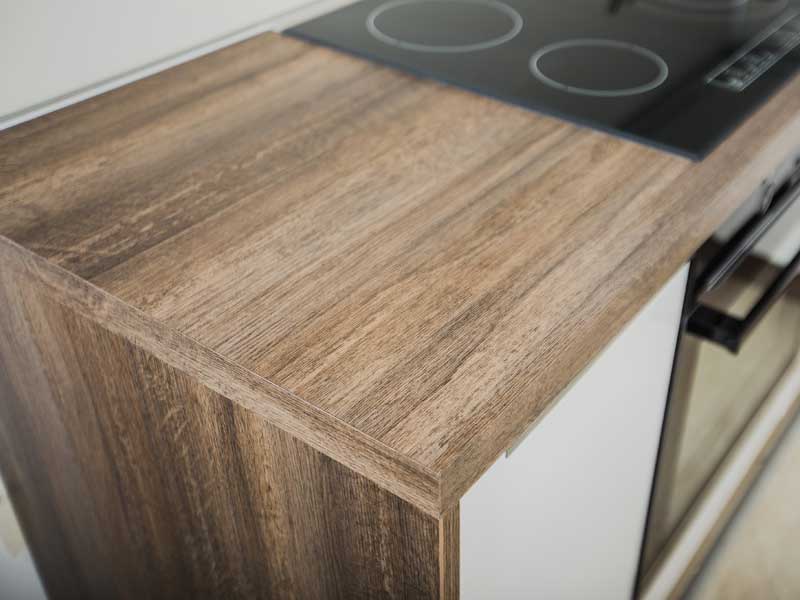
Laminate benchtops are budget-friendly and available in a variety of colors and patterns. They’re relatively easy to maintain, but it’s essential to avoid damage from high heat and scratches.
Cleaning: Wipe down laminate benchtops with a soft cloth or sponge dampened with warm water and mild dish soap. Avoid using abrasive cleaners or scrubbers that can scratch the surface.
Stain Removal: For tough stains, create a paste of baking soda and water, apply it to the stain, and let it sit for a few minutes. Gently scrub with a soft cloth, then rinse and dry.
Preventing Damage: Always use trivets or hot pads under hot pots and pans to prevent heat damage, and avoid cutting directly on the countertop to prevent scratches.
Stainless Steel benchtops
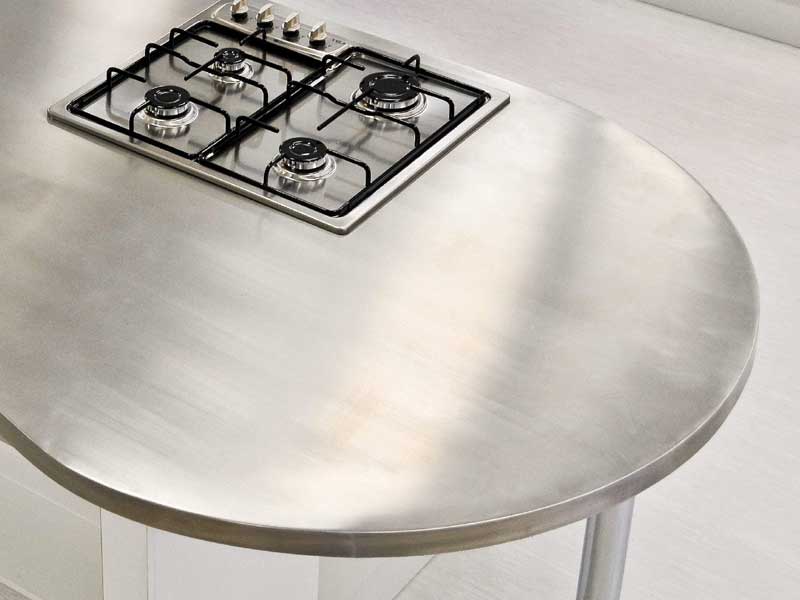
Stainless steel benchtops are durable, hygienic, and heat-resistant, making them a popular choice for modern kitchens.
Cleaning: Use a soft cloth or sponge with warm water and mild dish soap to clean stainless steel benchtops. Wipe the surface in the direction of the grain to avoid streaks.
Stain and Scratch Removal: For stubborn stains or minor scratches, use a non-abrasive cleaner specifically designed for stainless steel. Apply the cleaner with a soft cloth, rubbing in the direction of the grain.
Polishing: To restore the shine to your stainless steel countertop, use a specialized stainless steel polish and a clean, soft cloth. Follow the manufacturer’s instructions for the best results.
Concrete benchtops
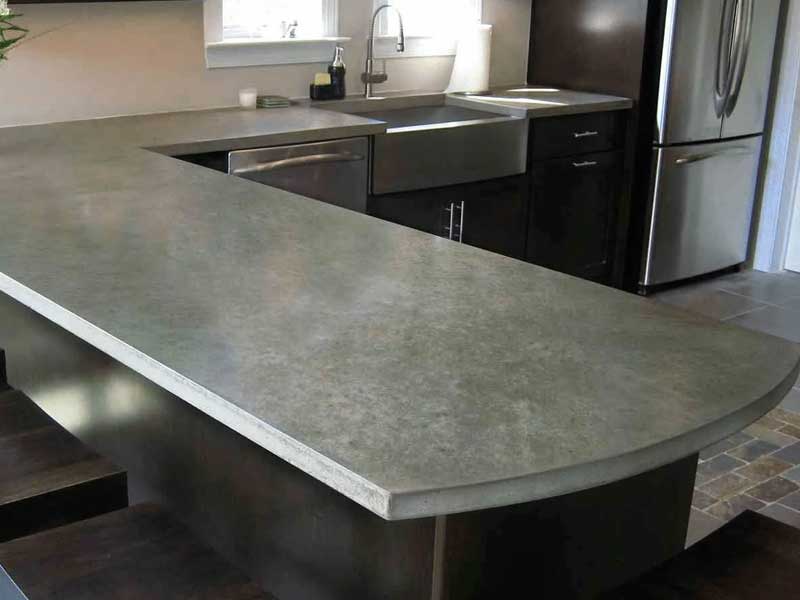
Concrete benchtops are versatile, customizable, and offer a unique industrial look. They require regular maintenance to keep them looking their best.
Cleaning: Wipe down concrete benchtops with a soft cloth or sponge dampened with warm water and mild dish soap. Avoid using harsh or abrasive cleaners that can damage the surface.
Sealing: Concrete benchtops should be sealed every one to three years, depending on use, to protect them from stains and moisture. Choose a high-quality concrete countertop sealer and follow the manufacturer’s instructions for application.
Waxing: Applying a wax specifically designed for concrete benchtops every two to three months can help maintain the surface’s appearance and make routine cleaning easier.
Wood benchtops

Wood benchtops offer a warm, natural look and can be quite durable if properly maintained.
Cleaning: Use a soft cloth or sponge with warm water and mild dish soap to clean wood benchtops. Avoid using harsh or abrasive cleaners that can damage the surface.
Stain Removal: For stains on wood benchtops, mix equal parts vinegar and water, and gently scrub the stain with a soft cloth. Rinse with water and dry thoroughly.
Sealing: To protect wood benchtops from moisture and stains, apply a food-safe oil or wax every three to six months, depending on usage. Follow the manufacturer’s instructions for the best results.
Daily Maintenance
To keep your benchtops looking great, establish a daily cleaning routine. Wipe down your benchtops after every use with a soft cloth or sponge dampened with warm water and mild dish soap. This helps prevent the buildup of dirt, grease, and grime, making deep cleaning easier.
Deep Cleaning
Schedule a deep cleaning session for your benchtops at least once every few months, or more frequently if you notice dirt or stains. This involves a thorough cleaning with the appropriate products, stain removal, and sealing or waxing as needed.
Preventative Measures
To keep your benchtop in pristine condition, follow these preventative measures:
- Use trivets or hot pads under hot pots and pans to prevent heat damage.
- Avoid cutting directly on your countertop; always use a cutting board.
- Be mindful of the products you use for cleaning, as some may cause damage to certain countertop materials.
- Clean spills immediately to prevent stains.
By following these guidelines, you can ensure that your kitchen benchtop remain clean, hygienic, and visually appealing. Proper kitchen maintenance not only enhances the beauty of your space but also contributes to a healthy cooking environment for you and your family.

